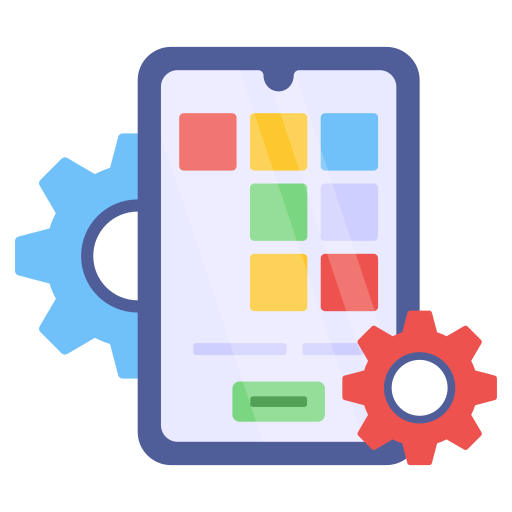Mobile App Development
- Home
- Mobile App Development
Mobile App Development in Dubai
In today’s digital era, mobile applications have become an integral part of our lives. From ordering food to booking a cab, mobile apps have revolutionized the way we interact with businesses and services. To cater to the increasing demand for mobile app development, Dubai has emerged as a hub for innovative and cutting-edge mobile app solutions. In this article, we will explore the world of mobile app development in Dubai, highlighting the different types of mobile apps and the latest technologies used in their development.
Mobile App Development in Dubai
Dubai, known for its technological advancements and thriving business ecosystem, has witnessed a significant rise in the demand for mobile app development services. Businesses in Dubai understand the importance of having a strong mobile presence to connect with their customers and provide seamless user experiences. To meet this demand, numerous mobile app development companies have emerged, offering a wide range of services tailored to different business needs.
Benefits of Hiring a Mobile App Development Company in Dubai

Expertise in Developing Customized Solutions
Mobile app development companies in Dubai possess the expertise to develop tailored mobile solutions that align with your business objectives. They understand the unique requirements of various industries and can deliver apps that cater to specific needs.

High-Quality App Development
Dubai-based app development companies adhere to international quality standards, ensuring the delivery of high-quality mobile applications. Their focus on user experience and functionality sets them apart from the competition.

Access to the Latest Technologies
Dubai’s app development companies stay up-to-date with the latest trends and technologies in the industry. They leverage emerging technologies such as artificial intelligence (AI), machine learning (ML), and blockchain to create innovative and competitive apps.

Localization and Multilingual Support
Dubai is a diverse city with a multicultural population. Mobile app development companies in Dubai understand the importance of localization and multilingual support in catering to a global audience. They can develop apps that are tailored to different languages and cultural preferences.

Post-Development Support
A reliable mobile app development company in Dubai provides comprehensive support services even after the app is deployed. They offer maintenance, updates, and troubleshooting to ensure your app functions smoothly.
Types of Mobile App Development
Mobile apps can be categorized into various types based on their functionality and purpose. Let’s explore some of the most common types of mobile app development:

E-Commerce Apps
E-commerce apps simplify online shopping, enabling customers to browse, buy, and manage products through user-friendly mobile interfaces.

Social Media Apps
Social media apps connect people worldwide, enabling sharing, communication, and networking through digital platforms on mobile devices.

On-Demand Service Apps
On-demand service apps provide quick access to various services, enhancing convenience and efficiency for users.

Business and Productivity Apps
Business apps boost productivity, streamlining tasks, and improving efficiency in daily operations.
Android App Development Services
Android app development services focus on creating applications for smartphones and tablets running on the Android operating system. Android developers utilize the following languages and frameworks for developing robust and feature-rich Android apps:

Java
Java has been the traditional language for Android app development for many years. It provides developers with a wide range of libraries and tools to build scalable and efficient apps. Java’s object-oriented nature allows for code reusability and modular development, making it a popular choice among Android developers.

Kotlin
Kotlin, introduced by JetBrains, has gained significant traction in recent years as an alternative to Java for Android development. Kotlin offers a modern and concise syntax, improved safety features, and seamless interoperability with Java. Its ability to reduce boilerplate code and enhance developer productivity has made it a preferred choice for many Android app development projects.

C++
While primarily used for low-level development tasks, C++ can be leveraged in Android app development for performance-critical modules. Developers often use C++ for tasks such as graphics rendering, audio processing, and handling complex algorithms. Its close integration with the Android NDK (Native Development Kit) enables efficient utilization of device resources.
Frameworks and Libraries
Android app development also relies on various frameworks and libraries to accelerate the development process and enhance app functionality. Some commonly used frameworks include:

Android SDK
React Native, based on JavaScript, is a popular cross-platform framework for developing Android (and iOS) apps. It allows developers to write code once and deploy it on multiple platforms, saving time and effort.

React Native
React Native, based on JavaScript, is a popular cross-platform framework for developing Android (and iOS) apps. It allows developers to write code once and deploy it on multiple platforms, saving time and effort.

Flutter
Flutter, developed by Google, is another cross-platform framework gaining popularity in the Android app development landscape. It uses Dart as the programming language and enables developers to create visually appealing and high-performance apps.
iOS App Development Services
iOS app development services focus on creating applications for Apple’s iOS devices, including iPhones, iPads, and iPods. Developers working on iOS apps utilize specific languages and frameworks to ensure seamless integration and compliance with Apple’s ecosystem.
Swift
Swift, developed by Apple, has quickly become the primary programming language for iOS app development. It offers a modern syntax, enhanced performance, and safety features that help developers write clean and efficient code. Swift’s seamless interoperability with Objective-C (an older language used for iOS development) allows developers to leverage existing codebases and libraries.
Objective-C
Objective-C, the predecessor to Swift, is still widely used in iOS app development. Many legacy iOS apps and frameworks are written in Objective-C. Developers well-versed in Objective-C can maintain and enhance existing iOS apps, as well as work on new projects requiring its specific capabilities.